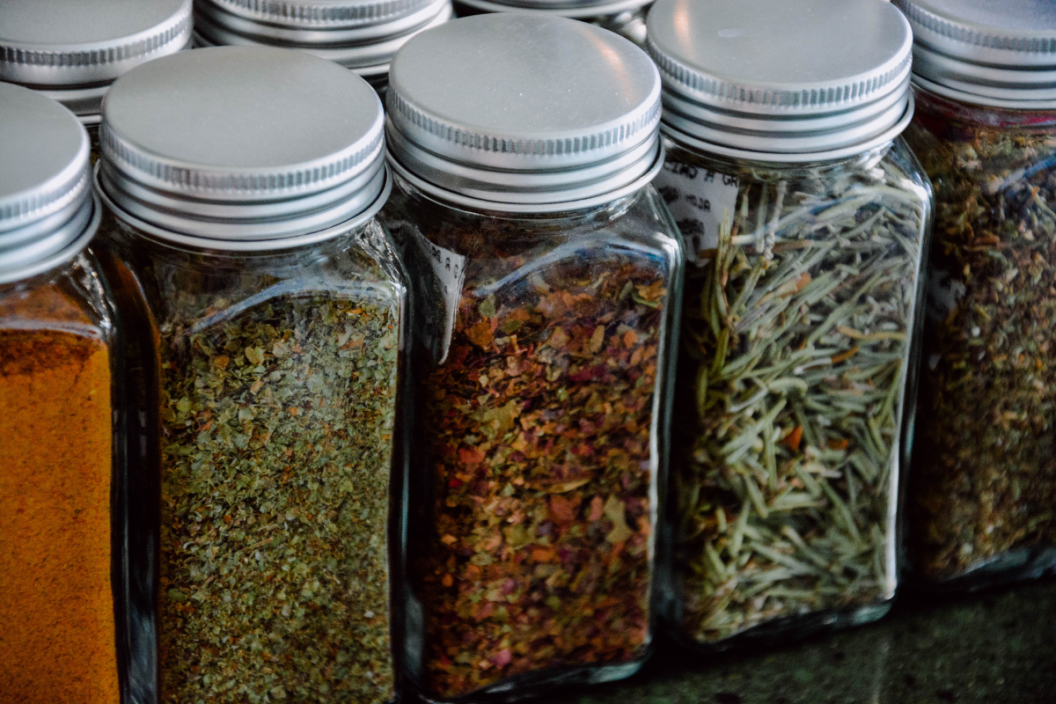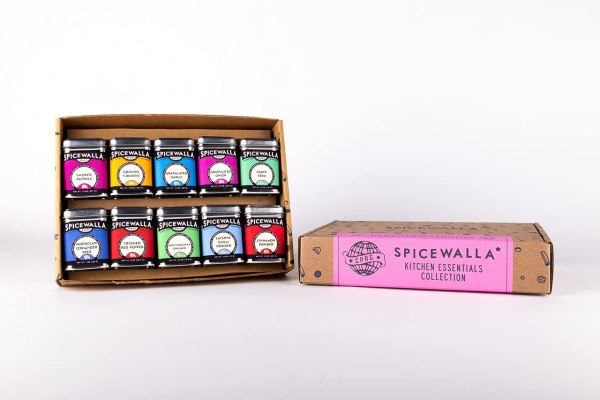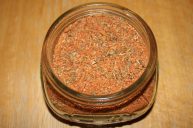https://rumble.com/embed/u7gve.v3wi8p/
Videos by Wide Open Country
There's a common misconception among home cooks, and I'm here to right it: Those spices in your pantry, the ones that are half-full, that you've had for years but can't bring yourself to throw away? Yeah, most likely, those spices have gone bad.
Don't get me wrong: That's past-expiration nutmeg or clumpy cumin may not hurt you, but it will not taste like it's supposed to—or, likely any good at all.
While many make a regular chore of cleaning their pantries, freezer and refrigerators, the spice rack always seems to go untouched. Contrary to popular belief and practice, spices do indeed expire. Read on to learn how best to store your dried herbs and how to tell when they're past their prime. (And if find yourself needing to start over, here are the basic spices we think should always have on hand.)
How to Store Spices
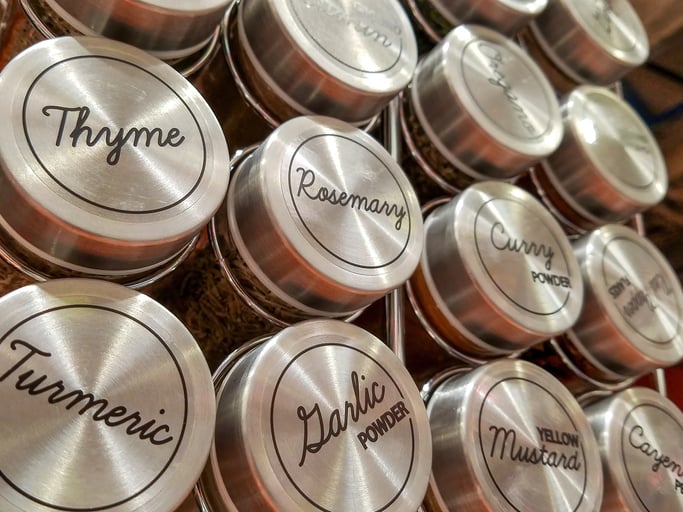
Before we get into the common expiration dates of spices, it's important to note that the best way to store spices to last is in their original container or a similarly sealed airtight container. The shelf life of your spices isn't dependent on whether they're unopened or unopened, but that they're fully sealed after each use.
While those countertop spice racks may look nice, for the best flavor and shelf life, it's best to store your spices in a dry environment and in a dark place, like a dark cupboard or pantry. (You need the counterspace I'm sure!) Of course, how you organize your kitchen and spices depends on your preferences, but I began to group mine by those with a shorter shelf life and those with a longer sell-by date. Spices in the red pepper family, like red pepper flakes and paprika, will store longer in the refrigerator, but the taste may slightly change.
How Long Do Spices Last?
Under Shelf-Stable Food Safety, the USDA defines spices as a shelf-stable product and in the case of spices, they never truly expire. What occurs over time is that the flavor and potency of that flavor wanes. Whole spices will stay fresh for about four years, while ground spices run between three and four years. For dried herbs, many will last from one to three years, but it varies depending on the type. (Fresh herbs, by contrast, will likely only stay fresh for about five days.) As for seasoning blends, simply follow the two to three years guideline to ensure you take advantage of peak freshness.
The vibrant color of dried and ground spices and herbs will fade as they lose their fragrance and in the case of fresh leafy herbs, begin to wilt. For example, I knew my pumpkin pie spice was long expired when it was no longer a brighter orange, but instead a sad brown.
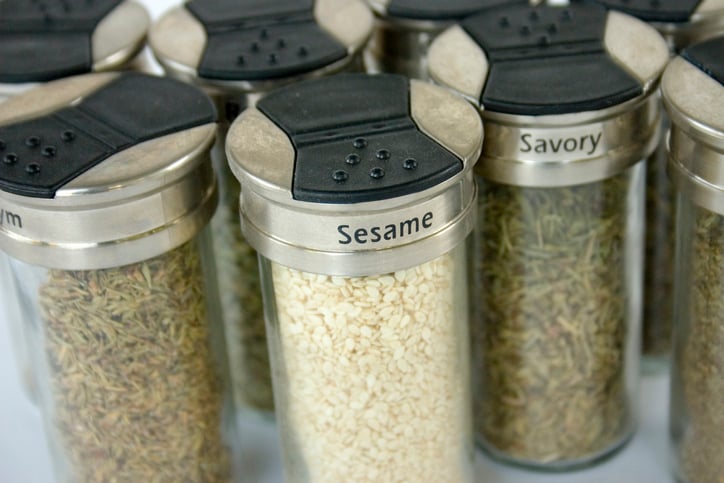
However, the best way to investigate whether or not a spice is past it's prime is to rub a tiny bit into your palm and take a big ol' whiff. In the sniff test, fresh spices will be very fragrant, and you'll know immediately if your spices are dull and without flavor from sitting around if you can't smell it.
When purchasing new spices in the future, a small task can go a long way: Put a small piece of painter's tape or masking tape on the bottom of your spices before putting them in the pantry and write down the date of purchase. This makes sorting through and cleaning out your spice rack so much easier
How Long Do (Specific) Spices Last?
For some specific guidance on when spices expire, here is a round-up of spice expiration dates.
Allspice: Ground and dried allspice lasts about two to three years.
Basil: Fresh basil lasts about five to seven days, while ground and dried lasts about two to three years.
Bay leaves: Fresh bay leaves last about five to seven days, while ground and dried bay leaves last about two to three years.
Black pepper: Ground and dried black pepper last for about two to three years, while whole peppercorns last about five to six years.
Cayenne pepper: Fresh cayenne lasts about five to seven days, while ground cayenne pepper lasts about two to three years. Like paprika, cayenne pepper will last longer in the refrigerator, though it's not required.
Chili powder: Ground chili powder lasts about two to three years.
Cilantro: Fresh cilantro lasts about five to seven days, while ground and dried lasts about two to three years.
Cinnamon: Ground and dried cinnamon last about two to three years.
Cloves: Fresh cloves last about five to seven days, while ground and dried cloves last for two to three years. Whole cloves last four to five years.
Coriander: Ground and dried coriander lasts for two to three years.
Cream of Tartar: Ground and dried cream of tartar last about two to three years.
Cumin: Ground cumin lasts about two to three years.
Dill: Fresh dill lasts about five to seven days, while ground dill lasts about two to three years.
Garlic: Fresh garlic lasts for four to six months, while ground and dried garlic each last about two to three years.
Italian Seasoning: Ground and dried Italian Seasoning lasts for about two to three years.
Jalapeños: Fresh jalapeños last for about five to seven days, while ground and dried will last about two to three years.
Mint: Fresh mint lasts about seven to 10 days, while ground and dried mint last for about one to three years.
Mustard: Fresh mustard, not the condiment, lasts for about five to seven days. Ground and dried mustard, on the other hand, lasts for about two to three years.
Nutmeg: Ground and dried nutmeg last for about two to three years.
Onions: Fresh onions last for about five to seven days, while dried and ground onion powder lasts for about two to three years.
Oregano: Fresh oregano lasts about five to seven days, while ground and dried oregano last about two to three years.
Paprika: Dried and ground paprika last about two to three years.
Parsley: Fresh parsley will last about five to seven days, while ground and dried will last about two to three years.
Pumpkin Pie Spice: Ground pumpkin pie spice will last about two to three years.
Rosemary: Fresh rosemary will last about 10 to 14 days in the refrigerator, while dried and ground rosemary will last about one to three years.
Sage: Fresh sage will keep about 10 to 14 days in the refrigerator, while dried sage leaves will last about one to three years. Ground sage will last about three to four years.
Salt: Table salt keeps indefinitely, just like kosher salt and sea salt.
Steak Seasoning: Bottled or bulk steak seasoning will last about one to two years.
Taco Seasoning: Packets of taco seasoning will last about two to three years.
Thyme: Fresh thyme will last about 10 to 14 days in the refrigerator, while ground and dried thyme will last about three to four years.
Turmeric: Ground turmeric will last about three to four years.
What Spices to Always Keep On-Hand
Given this list, and how quickly some spices require turnover, what dried herbs should you always have in your pantry? While there is no one-size-fits-all spice rack, as what you use most will depend on your own tastes and habits, we can provide a bit of guidance.
We highly recommend Spicewalla's Kitchen Essentials Spice and Seasonings mix.
Best Kitchen Spices Starter Kit
10 Piece Spicewalla Kitchen Essentials Spices and Seasonings Set - Amazon, $59
This 10-piece set comes complete with the top 10 most used spices and herbs including smoked paprika, ground turmeric, granulated garlic, granulated onion, cumin seed, coriander seed, crushed red pepper, oregano, cayenne powder, and cinnamon powder. Made in small batches in Asheville, North Carolina, these aromatic spices are kept in sustainable tins that add a nice bit of character to your spice drawer.
Always, of course, keep an ample amount of black pepper, and various kinds of salt: table salt, kosher salt (for cooking), and then a large-flaked finishing salt, such a Malden or other sea salt. These will be the foundations for whatever dishes you make. Basics such as whole bay leaves, coriander seed, and mustard seed will retain their freshness for longer because they haven't been pre-ground.
On the whole, we recommend only buying dried, ground spices for a specific dish, and only if you plan to use them consistently over the next year. Otherwise, you (and your pantry) will be better served buying whole dried spices (like whole cloves), and grinding them yourself as needed in a spice grinder or blade-style coffee grinder.
Additional Information for McCormick Buyers
Recently, McCormick Spices in Maryland posted a message to consumers regarding expiration dates. The brand states that if you see "Baltimore, MD" printed on your McCormick spice label, that spice is at least 25 years old. (Now that's some old spice in your spice cabinet!) From our point of view, this should be thrown out immediately, unless you want to try your hand at selling it on eBay.
Modern McCormick spice blends will read "Hunt Valley, MD" because that's where they are currently manufactured. Additionally, McCormick hasn't used rectangular tins for herbs and spices in 25 years, so if you have any of those lying around, go ahead and toss 'em because yes, spices do expire.
Editor's Note: Products featured on Wide Open Country are independently selected by our editors. However, when you buy something through our links, we may earn a commission.
